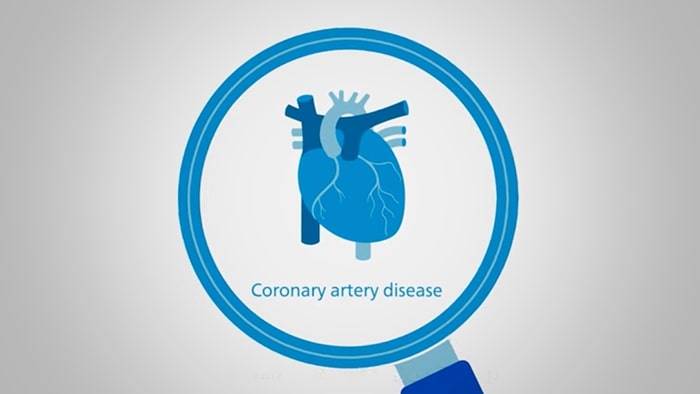Myocarditis, the inflammation of the heart muscle (myocardium), is a condition that can have serious implications for heart health. It can lead to a variety of complications, including heart failure, arrhythmias, and even death. Understanding why myocarditis is dangerous requires a closer examination of its causes, symptoms, and potential long-term effects.
What Is Myocarditis?
Myocarditis is primarily caused by viral infections, but it can also result from bacterial infections, autoimmune diseases, or exposure to certain medications and toxins. The inflammation can weaken the heart muscle, affecting its ability to pump blood effectively. This condition can occur in people of all ages but is particularly concerning in young adults and adolescents.
Symptoms of Myocarditis
Symptoms of myocarditis can vary widely. Some individuals may experience mild symptoms or none at all, while others may have severe manifestations that include:
Chest pain: Often described as pressure or tightness.
Fatigue: A general sense of tiredness that does not improve with rest.
Shortness of breath: Difficulty breathing during rest or exertion.
Palpitations: Irregular heartbeats or a feeling of the heart racing.
Fainting: Loss of consciousness can occur in severe cases.
Why Is Myocarditis Dangerous?
1. Potential for Heart Failure
One of the most significant dangers of myocarditis is its potential to lead to heart failure. The inflammation can damage the heart muscle, reducing its ability to pump blood effectively. Over time, this can result in chronic heart failure, where the heart cannot meet the body’s demands for blood and oxygen. Heart failure can severely impact quality of life and may require advanced treatments such as medications, implantable devices, or even heart transplantation.
2. Risk of Arrhythmias
Myocarditis can disrupt the electrical signals that regulate heartbeats.
This disruption can lead to arrhythmias—irregular heartbeats that may be harmless or life-threatening. Some arrhythmias can cause palpitations, dizziness, or fainting spells; others can increase the risk of sudden cardiac arrest.
3. Long-Term Consequences
Even after recovery from acute myocarditis, individuals may face long-term health issues. Studies indicate that some patients develop chronic conditions like dilated cardiomyopathy—a condition where the heart becomes enlarged and weakened—resulting in persistent heart failure symptoms. The risk of recurrent myocarditis also exists, especially if the underlying cause is not addressed.
SEE ALSO: Does Myocarditis Have Long Term Effects?
4. Increased Mortality Risk
Research indicates that myocarditis is associated with an increased risk of mortality. A study found that patients with myocarditis related to viral infections had a higher mortality rate compared to those without cardiac involvement. This risk is particularly pronounced in individuals who develop severe forms of the disease.
5. Complications from COVID-19 Vaccination
Recent studies have highlighted a connection between myocarditis and COVID-19 vaccinations, particularly with mRNA vaccines like Pfizer-BioNTech and Moderna. While these cases are rare and typically mild compared to myocarditis caused by viral infections, they still pose a risk that must be considered when evaluating vaccination strategies.
The incidence appears to be higher in younger males after the second dose but remains significantly lower than the risk associated with COVID-19 infection itself.
Understanding Risk Factors
Certain factors may increase an individual’s risk for developing myocarditis:
Age: Young adults and adolescents are at higher risk.
Gender: Males are more likely to develop myocarditis than females.
Viral Infections: Infections such as influenza or COVID-19 are common triggers.
Autoimmune Diseases: Conditions like lupus or rheumatoid arthritis increase susceptibility.
Environmental Factors: Exposure to certain toxins or medications may contribute.
Diagnosis And Treatment
Diagnosing myocarditis typically involves a combination of clinical evaluation, imaging studies (like echocardiograms), blood tests (to check for markers of inflammation), and sometimes cardiac MRI or biopsy.
Treatment options depend on the severity and underlying cause:
Medications: Anti-inflammatory drugs and medications to support heart function (like ACE inhibitors) are commonly used.
Lifestyle Changes: Patients are often advised to rest and avoid strenuous activities during recovery.
Advanced Therapies: Severe cases may require hospitalization for more intensive treatments like intravenous medications or mechanical support devices.
Conclusion
Myocarditis poses significant dangers due to its potential to cause long-term heart damage, arrhythmias, and increased mortality risk.
Although it can be triggered by various factors—including viral infections and autoimmune responses—the implications for health are profound. Understanding these risks is crucial for both patients and healthcare providers in managing this serious condition effectively. In summary, while advancements in medical science continue to improve our understanding and treatment of myocarditis, awareness remains vital for prevention and prompt intervention when symptoms arise.
Regular follow-ups with healthcare professionals are essential for those at risk or those who have experienced myocarditis previously.
Related topics:
- Can Shingles Cause Myocarditis?
- Does Myocarditis Cause Back Pain?
- Does Myocarditis Cause Permanent Damage?

